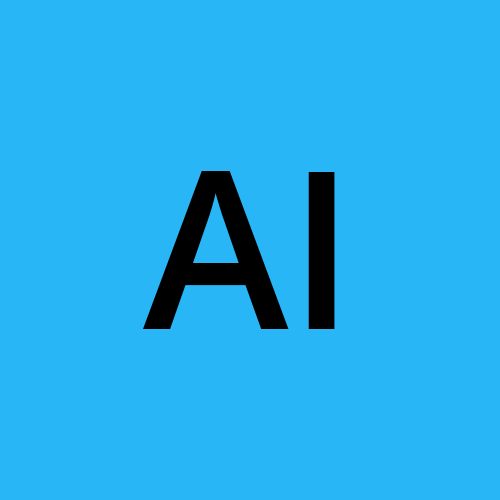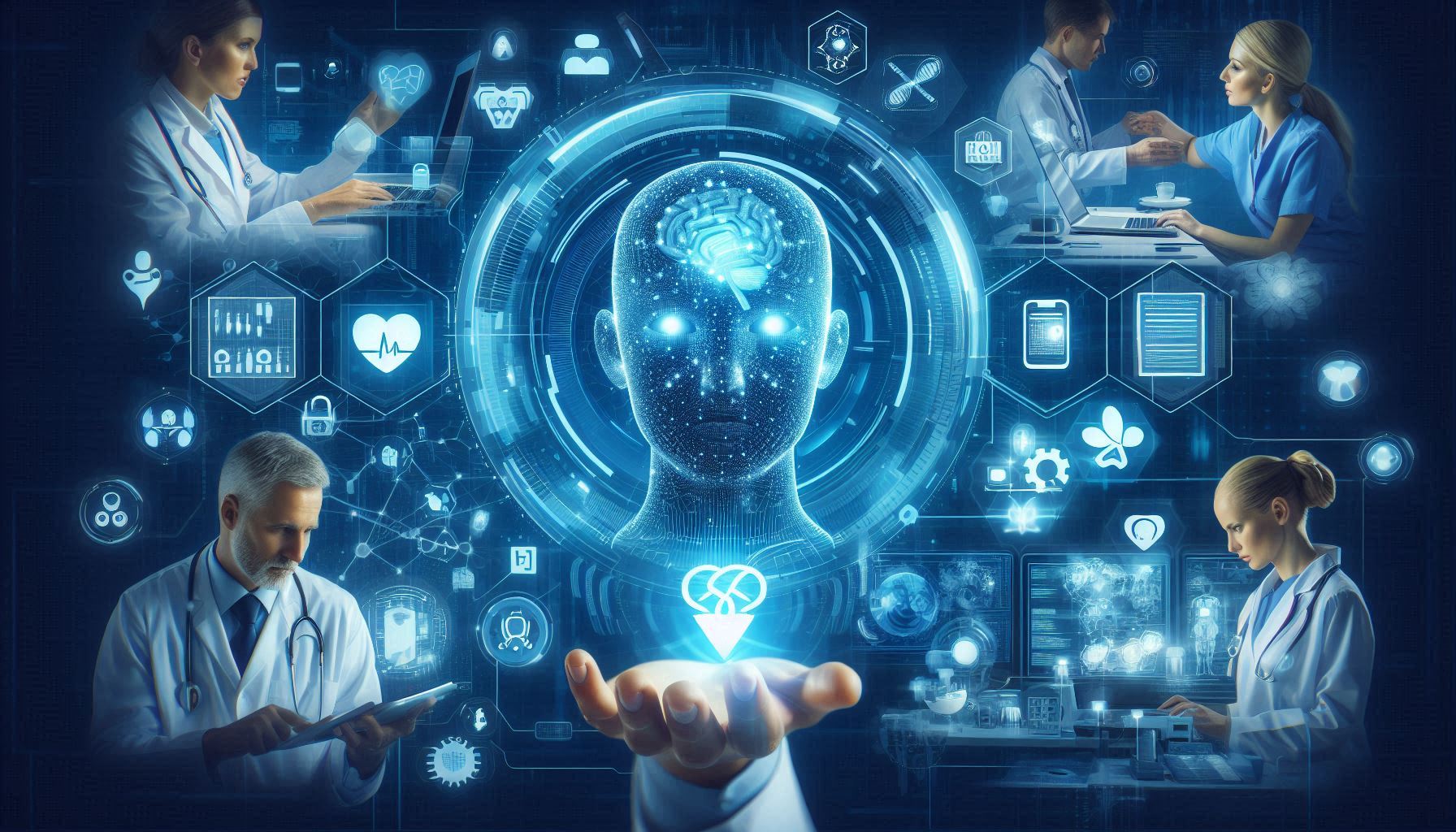How Artificial Intelligence is Transforming the Healthcare Industry
 AIperity
AIperity
Are you curious about the impact of AI on healthcare? We understand your interest in this groundbreaking technology and its potential to revolutionize medical practices. In this comprehensive guide, we'll explore how artificial intelligence is transforming the healthcare industry, offering valuable insights into the future of medicine and patient care.
Discover how AI is reshaping traditional healthcare practices, improving diagnosis accuracy, and creating new opportunities for personalized treatment. Whether you're a healthcare professional, industry leader, or simply interested in the future of medicine, this article will provide you with a clear picture of AI's transformative power in healthcare and its potential to enhance patient outcomes.
The AI Revolution in Healthcare
Artificial Intelligence (AI) is no longer a concept of the future; it's a present reality reshaping the landscape of the healthcare industry. At AIperity, we've witnessed firsthand how AI technologies are driving unprecedented changes and improvements across various aspects of healthcare.
Enhancing Diagnosis and Treatment
One of the most significant impacts of AI in healthcare is in diagnosis and treatment:
Medical Imaging Analysis: AI algorithms can analyze medical images with remarkable accuracy, often detecting issues that human eyes might miss. For instance, AI-powered systems have shown success in identifying early-stage cancers in radiological scans.
Predictive Diagnostics: By analyzing vast amounts of patient data, AI can predict potential health issues before they become serious, allowing for early intervention.
Treatment Planning: AI can assist in creating personalized treatment plans based on a patient's genetic makeup, lifestyle, and medical history.
As Dr. Eric Topol, a renowned cardiologist and digital medicine researcher, states, "AI won't replace doctors, but doctors who use AI will replace those who don't."
Revolutionizing Drug Discovery and Development
AI is accelerating the process of drug discovery and development:
Compound Screening: AI models can predict how different compounds will interact with target proteins, significantly reducing the time and cost of bringing new medications to market.
Clinical Trial Optimization: AI can help identify suitable candidates for clinical trials and predict potential outcomes, streamlining the trial process.
Drug Repurposing: AI algorithms can analyze existing drugs to find new therapeutic applications, saving time and resources in drug development.
At AIperity, we've helped pharmaceutical companies implement AI solutions that have resulted in up to 50% reduction in drug discovery timelines and a 30% increase in successful clinical trials.
Enhancing Patient Care and Experience
AI is improving patient care in numerous ways:
Personalized Medicine: AI analysis of genetic data and patient histories enables more tailored treatment plans, improving patient outcomes.
Remote Patient Monitoring: AI-powered devices can monitor patients' vital signs and alert healthcare providers to potential issues, enabling proactive care.
Virtual Health Assistants: AI chatbots can provide 24/7 support for patients, answering questions and providing guidance on non-emergency issues.
One of our healthcare clients at AIperity saw a 40% reduction in hospital readmissions after implementing our AI-driven remote patient monitoring solution.
Streamlining Administrative Tasks
AI is also making significant improvements in healthcare administration:
Automated Appointment Scheduling: AI systems can manage appointment scheduling, reducing wait times and improving patient satisfaction.
Medical Record Management: AI can help organize and analyze electronic health records, making it easier for healthcare providers to access and use patient information effectively.
Insurance Claims Processing: AI algorithms can streamline insurance claims processing, reducing errors and speeding up reimbursements.
According to a recent study by Accenture, AI in healthcare administration could save up to $18 billion annually in the US alone.
Challenges in Implementing AI in Healthcare
While the benefits of AI in healthcare are clear, implementing these technologies comes with challenges:
Data Privacy and Security: Ensuring the privacy and security of patient data is crucial when implementing AI systems.
Regulatory Compliance: AI systems in healthcare must comply with strict regulations like HIPAA in the US.
Integration with Existing Systems: Many healthcare institutions struggle with integrating AI solutions into their existing infrastructure.
Ethical Considerations: Issues like AI bias and the impact on patient-doctor relationships need to be carefully addressed.
At AIperity, we work closely with our healthcare clients to navigate these challenges, ensuring responsible and effective AI implementation.
The Future of AI in Healthcare
The impact of AI on healthcare is only set to grow. We anticipate:
More sophisticated AI models that can handle increasingly complex medical tasks.
Greater integration of AI with other emerging technologies like IoT and blockchain for comprehensive health monitoring.
Increased focus on explainable AI, making AI decision-making processes more transparent in medical contexts.
The emergence of new healthcare roles centered around AI technologies and data analysis.
Frequently Asked Questions
How can small healthcare practices start implementing AI?
Small healthcare practices can begin their AI journey by identifying specific areas where AI could add value, such as appointment scheduling or basic symptom checking. Start with off-the-shelf AI solutions that don't require extensive customization. Platforms like AIperity offer user-friendly AI tools designed for small healthcare practice needs.
What areas of healthcare are likely to see the biggest AI impact in the near future?
While AI is impacting all areas of healthcare, we expect to see particularly significant changes in personalized medicine, drug discovery, and preventive care in the near future. These areas deal with vast amounts of data and complex decision-making processes, making them prime candidates for AI-driven innovations.
How is AI affecting job roles in the healthcare industry?
AI is certainly changing job roles in healthcare, but it's important to note that it's creating jobs as well as changing existing ones. While some routine tasks may be automated, new roles are emerging in AI development, data analysis, and AI-human interaction in healthcare settings. The key is for healthcare professionals to adapt and acquire skills that complement AI technologies.
As we've explored, AI is reshaping healthcare in profound ways, offering unprecedented opportunities for improved patient care and medical advancements. To stay ahead in this AI-driven world of healthcare, it's crucial to stay informed and be prepared to adapt.
For more insights on how AI can benefit your specific healthcare practice or organization, visit our website at https://aiperity.com or check out our in-depth articles at https://blog.aiperity.com. You can also follow us on YouTube for video content on the latest AI trends and applications in healthcare.
Stay connected with AIperity for cutting-edge AI insights in healthcare:
Email: admin@aiperity.com
Fanpage: https://www.facebook.com/profile.php?id=61561931647082
Twitter: https://x.com/AIperity
Instagram: https://www.instagram.com/aiperity/
Together, let's embrace the AI revolution and shape the future of healthcare!
Subscribe to my newsletter
Read articles from AIperity directly inside your inbox. Subscribe to the newsletter, and don't miss out.
Written by
